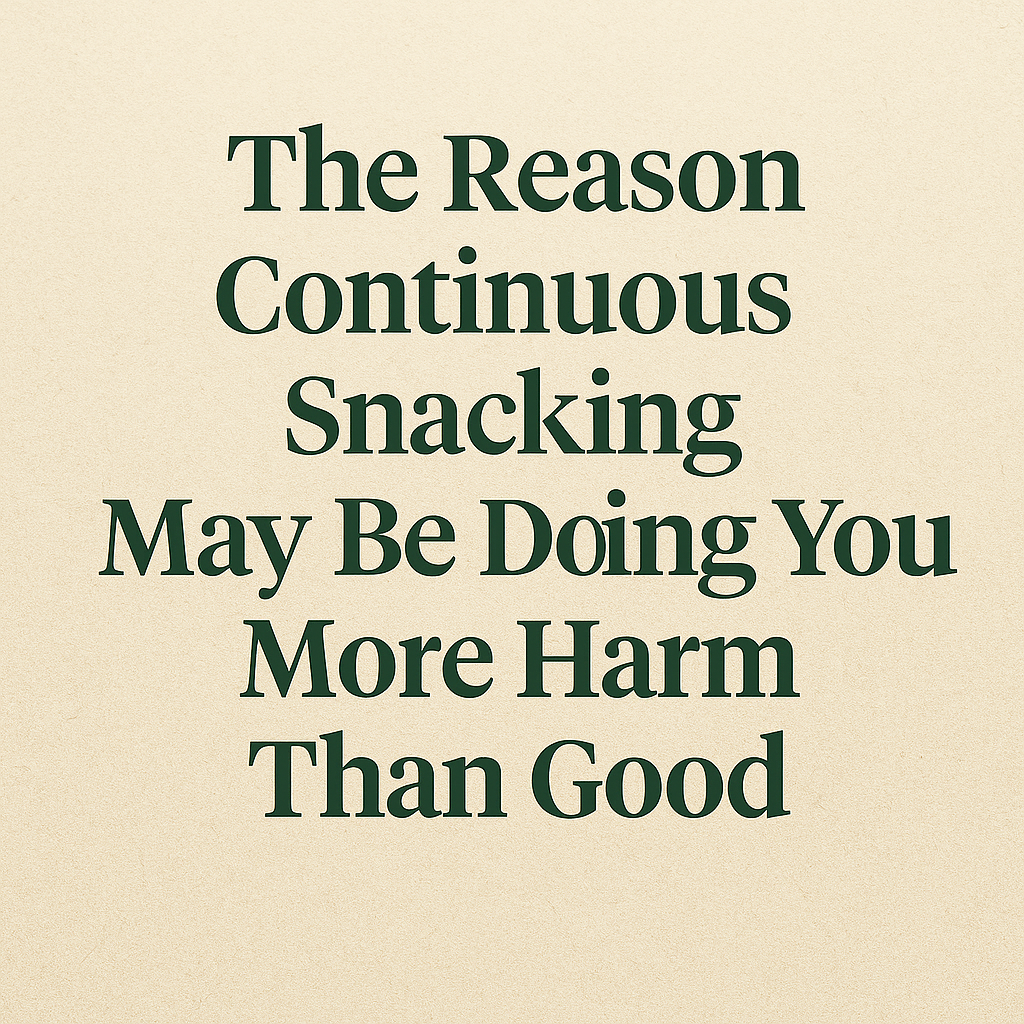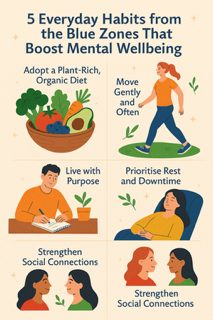When we talk about blood sugar, most people think of diabetes. But here’s the truth: blood sugar balance is essential for everyone, regardless of whether you’ve been diagnosed with a medical condition.
Even if you consider yourself healthy, regular blood sugar spikes and crashes can quietly affect your energy, memory, weight, mood and even long-term brain health.
Let’s take a closer look at why keeping blood sugar stable matters – and how to do it naturally.
The Hidden Effects of Blood Sugar Spikes
Every time you eat, your blood glucose (sugar) levels rise. This is completely normal. The problem arises when those levels rise too high, too fast, or stay elevated for long periods.
Over time, frequent blood sugar spikes can:
- Trigger inflammation
- Contribute to brain fog and poor memory
- Lead to fatigue and low mood
- Increase the risk of heart disease and Alzheimer’s
- Encourage fat storage, especially around the middle
You may have heard Alzheimer’s referred to as “type 3 diabetes” – this is because poor glucose metabolism is now recognised as a key driver in cognitive decline.
How Blood Sugar Affects the Brain
The brain needs a constant, steady supply of energy to function properly. But when your blood sugar is on a rollercoaster, it can interfere with your concentration, learning, and even your emotional regulation.
Spikes in sugar are followed by crashes – and those crashes often come with anxiety, brain fog, cravings, and irritability. Over time, your cells become less responsive to insulin (the hormone that helps move sugar out of the blood and into cells), leading to insulin resistance – a major risk factor for both metabolic and neurodegenerative diseases.
Signs Your Blood Sugar May Be Out of Balance
- Feeling sleepy or foggy after meals
- Craving sugar or caffeine throughout the day
- Waking in the night feeling hungry or anxious
- Storing fat around the belly
- Energy crashes between meals
If any of these sound familiar, don’t panic – the good news is that blood sugar can be improved naturally through everyday choices.
How to Balance Blood Sugar Naturally
- Start your day with protein and healthy fat
Ditch the cereal, toast and fruit juice. Instead, opt for eggs, avocado, nuts, or a protein smoothie to avoid a morning spike. - Avoid eating “naked carbs”
Always pair carbohydrates with protein, fat or fibre. For example, add nut butter to apple slices or hummus to oatcakes. - Go easy on fruit juices, smoothies and dried fruit
These can spike your glucose more than sweets. Stick to whole fruits, preferably berries, and enjoy them in moderation. - Move after eating
A brisk walk after meals can significantly reduce your blood sugar response. Just 10–15 minutes makes a difference. - Focus on real, unprocessed foods
Cook from scratch, avoid refined flours and hidden sugars, and build meals around vegetables, good fats and quality protein. - Don’t skip meals if it causes energy dips
While intermittent fasting works for some, others may need regular meals to avoid crashes. Listen to your body. - Sleep well and manage stress
Poor sleep and high stress can increase insulin resistance and sugar cravings. Prioritise both where possible.
Small Changes, Big Impact
Balancing your blood sugar doesn’t require extreme diets. It’s about creating stability in your body, so that your brain, mood and energy stay consistent throughout the day.
Whether your goal is to protect long-term brain health, manage weight, or simply feel more energised – supporting your blood sugar is one of the most effective places to start.
And the best part? You don’t need to wait for a diagnosis. You can begin today.
Written by Milvia Pili (FNTP)
Nutritional Therapist | Blue Zone Nutrition




